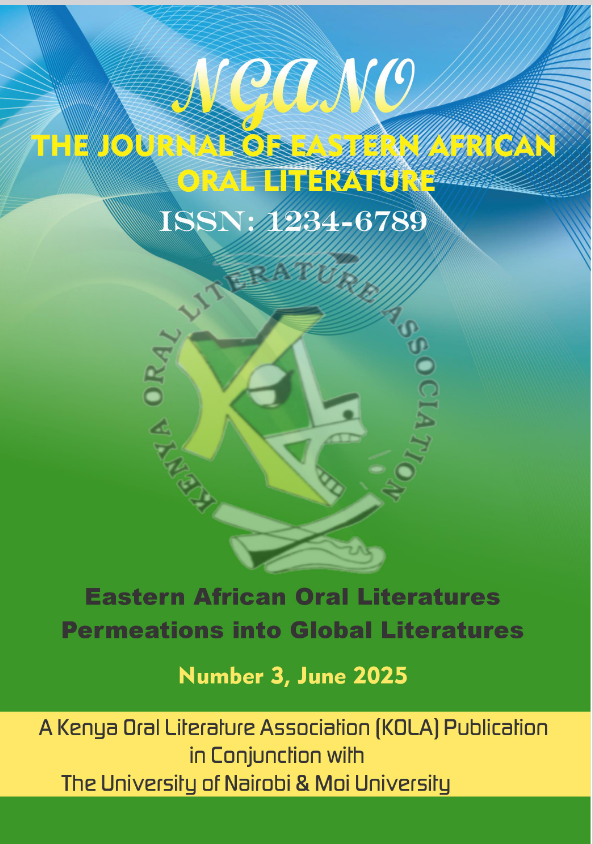Postcoloniality and Criticism in Orature: A Globalectic Reading of Three Oral Poems
Abstract
In this theoretical cum methodological paper, we examine how approaches grounded in postcoloniality could help enrich criticism in orature. The study is focused on how contemporary approaches, while interacting with traditional styles, could replenish both content and insights around the art. We adopt a cosmopolitan/Globalectic framework, where we argue that approaches that have sought to isolate orature presenting it as distinctive, complete with idiosyncratic names, are derivatives of the liberation project that seeks greater regard for the genre much as they border on dissent and protectionism. We therefore pursue a kind of good critical “gangsterism” in orature, what it might entail and its benefits to criticism in orature. The study espouses a syncretic approach that avoids a discontinuous and biased engagement with broad theory and criticism. Discussion is based on three purposively sampled oral songs with the help of ideas advanced by such postcolonial thinkers as Kwame Anthony Appiah, Ngu͂gi͂ wa Thiong’o and Russian formalist, Victor Shklovsky.

